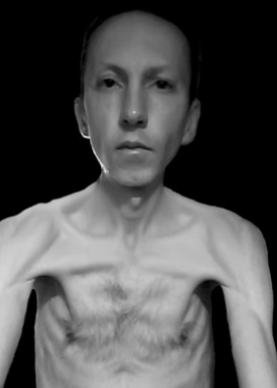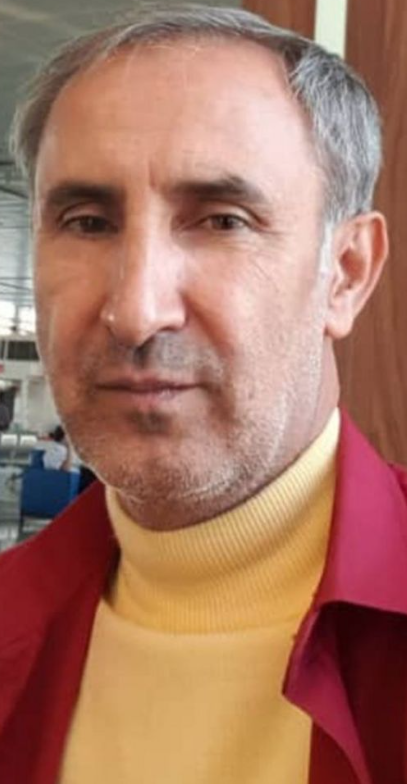May 20, 2022


Swedish prosecutors have announced they want a sentence of life imprisonment for Hamid Nouri, a former Iranian prosecutor, for his role in the mass executions in Iran in 1988. Five days later, an Iranian daily said Iran had decided to execute Swedish-Iranian dual national Ahmad-Reza Djalali, in what was seen as a scheme to save Noori.
Djalali, now 50, was arrested in April 2016, and sentenced to death the next year, but no action to carry it out was taken until after Swedish prosecutors said they wanted the maximum punishment meted out to Noori. The maximum in all of Europe is life, as the death penalty has been abolished there as far east as Russia.
Noori, 61, was being prosecuted in Sweden under the principle of “universal jurisdiction” for serious crimes. The principle, adopted in some form by 147 countries including the United States and Canada, allows a country to try a person of any nationality accused of a major crime like mass murder anywhere in the world. The principle was adopted in response to dictatorships that treat their own people criminally and enjoy immunity. The US Supreme Court has, however, limited its application in US courts to actions that that sufficiently “touch and concern the territory of the United States,” which has allowed US courts to try non-Americans for killing Americans abroad but not to try non-Americans for killing non-Americans abroad.
Noori was described as a deputy prosecutor at Gohardasht Prison in Karaj in 1988 when Supreme Leader Ruhollah Khomeini ordered a mass clearing of dissidents in prisons as a response to the Mojahedin-e Khalq military invasion of Iran with the help of Saddam Hussein’s Iraq.
An unknown number of prisoners went before panels in prisons all around the country and were quickly executed. Most of those killed were Mojahedin-e Khalq members or sympathizers, but others were executed as well.
Noori was accused of serving on the panel at Gohardasht prison. President Ebrahim Raisi was one of the four panel members at Evin Prison.
Sweden arrested Noori in August 2019 when he deplaned for a visit with relatives. Noori was charged with “war crimes, crimes against humanity, torture, and participating in the continued crime of refusing to return the bodies of executed prisoners to their families.” He denied any wrongdoing and said plaintiffs’ allegations were a “completely imaginary story.”
During his 89-day trial, witnesses told the court that Nouri was responsible for handing down death sentences and taking prisoners to where they were hanged or shot. The Swedish court is due to announce the verdict and sentence on July 14.
Immediately following the announcement of the prosecution’s demand for life imprisonment, Sweden’s Foreign Ministry advised citizens against making unnecessary trips to Iran, citing increased “expression of dissatisfaction” of Iranian officials over Noori’s trial.
Then on May 4, the Iranian Students News Agency (ISNA) carried a report saying the regime had decided to hang Djalali no later than May 21.
The Iranian government made no public announcement. The ISNA story was published within quotation remarks, indicating that someone had handed the story to ISNA and ordered it published. The story has not been denied in subsequent weeks.
The article said Djalali had been found guilty of spying “for the Zionist regime” and his death sentence had been approved by the Supreme Court, which must review and approve or veto all death sentences. Djalali was specifically accused of giving Israel information that was used to assassinate Iranian nuclear scientists.
The ISNA article made brief mention of Noori’s trial in Sweden, asserting that Noori was arrested in an effort to apply pressure on Iran to free Djalali.
In Stockholm, Swedish Foreign Minister Ann Linde tweeted, “Sweden and EU condemn the death penalty and demands that Djalali be released. We have repeatedly stated this to Iranian representatives. We are in contact with Iran.”
Djalali is a medical doctor and was a lecturer at the Karolinska Institute in Stockholm at the time of his arrest. He is known globally for his research on medical care after natural disasters.
Noori is the first and so far only person ever put on trial for a role in the mass executions of July and August 1988. The numbers killed have been estimated at from 2,800 to 30,000, though 5,000 is the number most commonly used. Noori was implicated only in the killings at Gohardasht, which were numbered at the trial at a few hundred.
In New York, Hadi Ghaemi, executive director of the Center for Human Rights in Iran (CHRI) said after the execution deadline was announced, “The Iranian government is engaging in blatant extortion. This thuggish behavior is an intimidation aimed at disrupting a fair trial against a man accused of heinous human rights violations.
“Iranian officials are used to committing rights violations with impunity in their country, and now they’re trying to force a foreign, independent court to do their bidding by threatening to sacrifice the life of a hostage.”
The day Swedish prosecutors asked for a life sentence, the Islamic Republic News Agency (IRNA), the state-owned news agency, carried a lengthy story asserting that Noori was not allowed by Sweden to defend himself, that he was held in solitary confinement ever since his arrest and denied contact with his family for two years, that he was not allowed to pick an attorney but forced to use one assigned by the Swedish court, that witnesses supportive of Noori were barred from testifying and that Noori was beaten in jail.



















